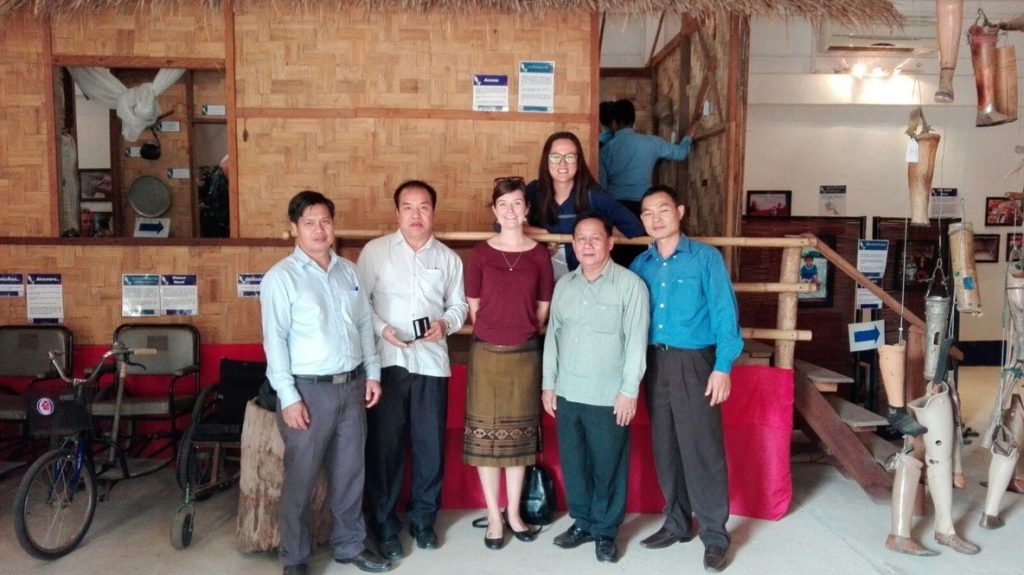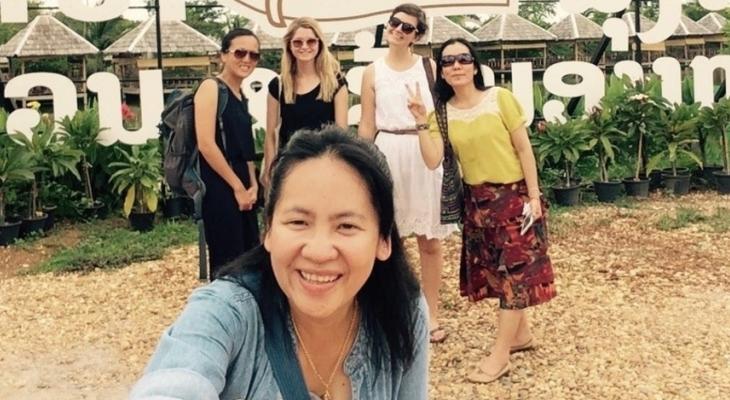Fostering Friendships, Seeding Change
In 2016, I went on no-pay leave and set off for Vientiane, Laos for a six-month teaching stint at the Lao Institute of Foreign Affairs (IFA), a volunteer programme of the Singapore International Foundation.
I didn’t know anyone in Laos when I left Singapore, other than a short email exchange I had with an IFA staff, but when I left Laos six months later, I was surrounded by friends from Laos, Brunei, Canada, USA and Japan.
The teaching stint in Laos was one of my first experiences working with a group of international and local volunteers. I had gone on Youth Expedition Programmes previously, as well as led students on overseas community involvement programmes, but this was not the same. In Laos, I was the only Singaporean in the teaching team comprising Lao teachers and international volunteers. I hung out a lot with both sides and learnt a lot about intercultural communications and relationships.
Intercultural differences
The American volunteer couldn’t understand why our Lao students found it hard to give feedback directly to the international teachers. Instead, they tended to channel the feedback to us through the Lao teachers. An outspoken and passionate Canadian teacher couldn’t understand why his idea of incorporating guest speakers and learning journeys into the English classes to make learning more engaging wasn’t wholeheartedly accepted. The Lao students couldn’t understand why the Muslim Bruneian volunteer rejected their friendly offers of beer and preferred to drink Coke at our class gatherings. I couldn’t understand why my Lao students never ever let us pay for our share of food, even when we just happen to bump into each other at restaurants when the international teachers went out for lunch together.
 Alyssa and I learnt the history of UXO (unexploded ordnance or military ammunition/explosive ordnance which failed to function as intended) in Laos from the students
Alyssa and I learnt the history of UXO (unexploded ordnance or military ammunition/explosive ordnance which failed to function as intended) in Laos from the studentsMy friendship with Toukta and VK, the local Lao teachers, as well as Alyssa, a Canadian volunteer, helped me better understand our intercultural differences. We often hung out. We ate papaya salad with sticky rice with our hands. We attended wedding parties together, even funerals. We celebrated Pi Mai Lao (Lao New Year) together and observed Buddhist vegetarian practices on special occasions.
I learnt that that Lao people did not like confrontation. They didn’t accept the Canadian teacher’s idea wholeheartedly not because it wasn’t good, but because they felt the way he put his point across was disrespectful. Similarly, it was too confrontational for the Lao students to convey their feedback directly to the international teachers. With Muslims only constituting 0.01% of the population in Laos, the Lao students didn’t know that alcohol is considered haram (forbidden by Islamic law). Laotians believe that the teacher is the most respected person after their parents and our students saw treating us to food as a way of expressing their gratitude.
I wouldn’t have known all these if not for my friendships with the Lao teachers and the international volunteers. There were still disagreements and cultural misunderstandings, but we learnt from the process.
A return visit two years later
In 2018, I went back to Laos. I stepped into IFA two years after my stint there. Do they know that they can incorporate learning journeys and guest speakers in their teaching? Yes, they do. Are they willing to do it? Yes, if you are a friend and ask them respectfully. I also met up with my Lao students, some of whom specially travelled back to Vientiane from another province to catch up with me over dinner. Have their English skills improved by leaps and bounds? Probably not. Are they willing to try to re-connect with you with whatever bits of English they know? Yes, definitely, because you’re a friend.
In Greg Mortenson’s Three Cups of Tea, a village chief explained to Mortenson the meaning of sharing tea for the Balti people, “Here we drink three cups of tea to do business; the first you are a stranger, the second you become a friend, and the third, you join our family, and for our family we are prepared to do anything even die.”
My volunteering stints in Laos taught me a lot about humility and respect. International volunteers from the Global North (including Singapore) like to think we have a lot to offer and we may tend to impose our ways of being and doing on those that we believe needs help. But this kind of helping relationship is an unequal and a self-regarding one. We need to develop empathetic and respectful friendships. The pace of change might not be as great as we like, but these seeds of change are more likely to flower and bear fruit in the future than those that are imposed.






